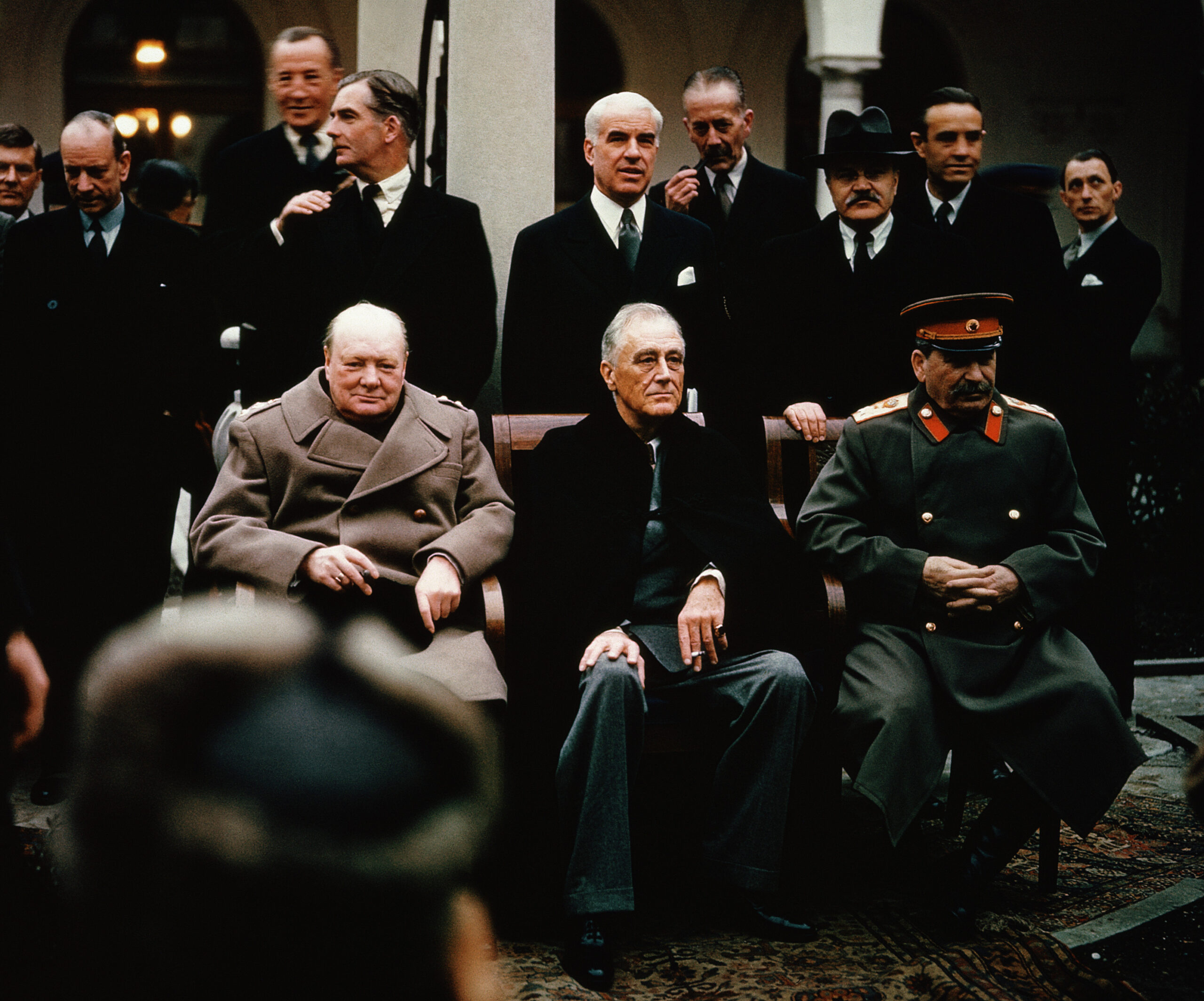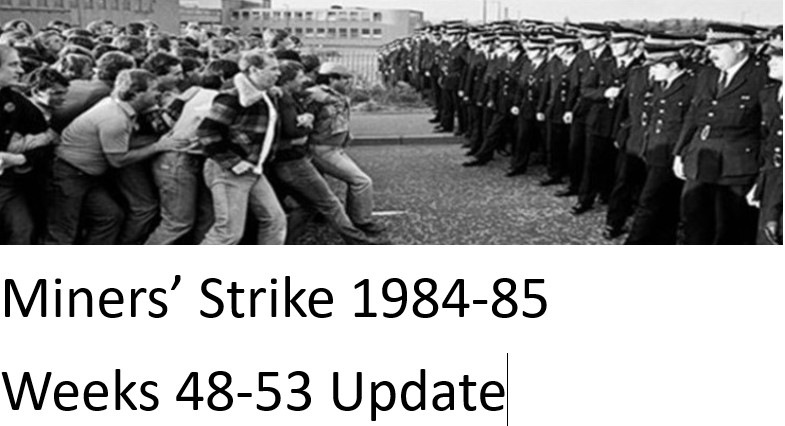The latest in our occasional series of articles by Andy Ford on 80-year anniversaries of events in WW2 in the Soviet Union and Eastern Europe [featured photo shows l-r Churchill, Roosevelt and Stalin at Yalta – photo wiki commons]
**********
From 4-11 February 1945, Churchill, Roosevelt and Stalin met in the Crimean resort of Yalta to decide on the future of Europe. Their decisions and agreements determined the lives of millions of people for the next 44 years.
The conference was like a game of poker, but one in which Stalin, thanks to the victories of the Red Army, held most of the cards. At that point, in February 1945, the western allies had barely recovered from the Battle of the Bulge and had yet to cross the Rhine, and in the south, they were bogged down in Italy. Meanwhile the Russians stood on the River Oder, just 40 miles from Berlin.
Stalin played his cards cleverly. When Churchill began talking about a “free and fair election” for the government of Poland, that would likely elect the government-in-exile based in London, Stalin insisted that Poland was vital for the supply of the Red Army’s attack on Berlin – just as France was in relation to the allied attack across the Rhine. He then pointed out that the ‘London government’ had no more credibility than the Free French led by De Gaulle.
As the French Communist Party had been the backbone of the Resistance, and stood ready with thousands of fighters, Stalin was hinting that he might use them to disrupt the Allied rear in France if he did not get his way in Poland. When the US and Britain started insisting on a French place on the future UN Security Council, Stalin insisted on seats in the UN for all sixteen Soviet Republics, and then allowed himself to be bargained down to just two extra seats, for Ukraine and Belarus as well as the main seat for the USSR.
On Greece, which Churchill wanted as a British satellite to protect the Suez Canal, Stalin gave way, saying he “did not care a hang about Greece” and that the Greek Communists were “not proper communists anyway”. In fact, the Greek Communists, who had been fighting a bitter but successful guerilla war against the Nazis, had more claim to be proper communists than Stalin and his functionaries.
Greek resistance butchered
The problem for Stain was that in fighting an underground war, organically linked to the peasants in the mountains and workers in the cities, they had evolved towards “proper communism” (which Churchill called Trotskyism) and were not fully under Stalinist control. So, at Yalta Stalin abandoned them to the ‘British sphere of influence” with tragic consequences: – the British invaded, armed the Greek fascists, rearmed the ‘Security Battalions’ who had fought for the Nazis, and proceeded to butcher the Greek resistance fighters.
In this, Stalin was sticking to the cynical deal he made with Churchill in Moscow in October 1944 where Churchill had written the names of various East European countries on a napkin and assigned them to either the Russian or US/UK ‘sphere of influence’. Romania was to be 90% Russian and 10% ‘the others’; Greece was to be 90% British and 10% Russian; and Yugoslavia was to be split 50:50.

[photo – Burning Coal Theatre}
The wishes of the peoples concerned played no part whatsoever in the discission. Stalin replied to Churchill’s offer with a big blue tick. In Churchill’s words “It was all settled in no more time than it takes to set down...” (The Yalta transcripts, New York Times)
After “a long silence”, and with true bourgeois hypocrisy, Churchill said that maybe they should destroy the napkin. Stalin contemptuously said, “No you keep it”, making the point that Churchill was no better than his Soviet opponent.
As for the Americans, they needed the USSR to move against Japan in order to avoid the enormous casualties of a full-on invasion of the Japanese home islands. In return for a promise from Stalin to enter the war in the Far East within 3 months of victory in Europe – a promise he kept – the Americans pretty much gave Stalin a free hand in Eastern Europe. The Baltic States were not even mentioned, so condemning them to decades of Stalinist occupation. As for Poland, everyone agreed to an aspiration for “free elections”, whatever that might mean under the watch of the Soviet secret police, the NKVD.
Independent working-class movements suppressed
Both the Stalinists and the imperialists remembered what had happened in 1917-1921 when a revolutionary upsurge threatened to sweep away capitalism in Europe, and actually did so in in Russia. The upsurge underway in 1944-1945 had exactly the same potential, and would have likely overthrown the Stalinist dictatorship in the USSR. Independent working-class movements, especially if armed and organised, had to be derailed, suppressed and stopped.
That is why Stalin colluded in the strangulation of the Greek revolution, the suppression of the factory occupations in Italy, and the betrayal of the uprising of the Home Army in Poland. The American attitude to the Polish masses was shown by the US negotiator Harry Hopkins’ response to protests from a State Department official that the deal was terrible for Poland:
“What does it matter? The Poles are like the Irish. They are never satisfied with anything anyhow”
(Jan Ciechanowski ‘Defeat in Victory’)
The Yalta conference, where the delegates stayed in luxurious Tsarist palaces, especially refurbished, as they carved up a continent, was the model for the famous scene at the end of George Orwell’s ‘Animal Farm’ where the animals (the working class) look at the pigs (the Stalinists) and the humans (the capitalists) at their drunken feast:
“The creatures outside looked from pig to man, and from man to pig, and from pig to man again; but already it was impossible to say which was which.”



